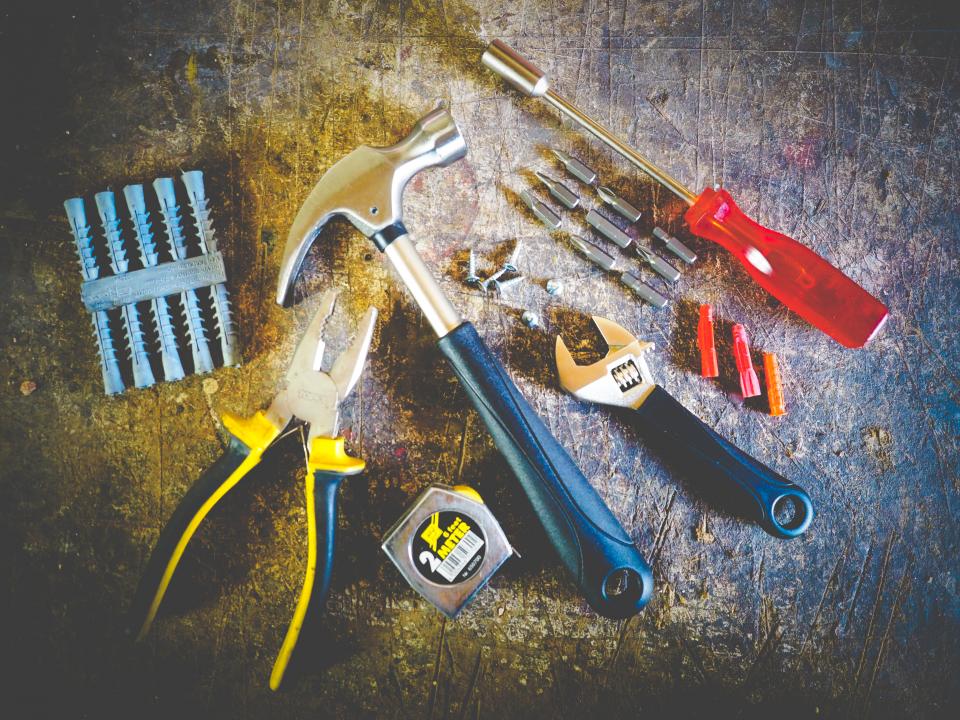
Swedish government tackles ‘throwaway culture’ by slashing tax on fixing everything from clothing and footwear to bicycles and washing machines.
Sweden introduces Tax Breaks For Repairs
New legislation provides tax incentives that encourage people to get things repaired rather than throw them away, and Sweden isn’t alone in its fix-it approach to broken consumer goods.
Initiative sees tax on repairs drop from 25% to 12% and new jobs created
At the beginning of the year the Swedish government introduced tax breaks on repairs to everything from bicycles to washing machines so it no longer makes sense to throw out old or broken items and buy new ones.
Back in September of 2016, Sweden’s ruling Social Democrat and Green party coalition submitted proposals to parliament to slash the tax rate on repairs to bicycles, clothes and shoes from 25% to 12%.
They also submitted a proposal to allow people to claim back from income tax half of the labour cost on repairs to appliances such as fridges, ovens, dishwashers and washing machines. These propsals were passed and came into effect on January 1 this year.
“We believe that this could substantially lower the cost and so make it more rational economic behaviour to repair your goods,” said Per Bolund, Sweden’s minister for financial markets and consumer affairs and one of six Green party cabinet members.
Mr. Bolund hopes the tax break on appliances will spur the creation of a new home-repairs service industry, providing much-needed jobs for new immigrants who lack formal education.
Elsewhere in the world, other fix-it movements are beginning to flourish.
Source: Guardian Main Photo: Flickr/NeonTommy

Elsewhere in the world
While Sweden has proven itself to be an early adopter environmentally friendly schemes on a grand scale – notably, eliminating its reliance on fossil fuels, and recycling to the point where they created a national garbage deficit (and for a country that relies on waste-to-energy incinerators to heat homes, that’s not necessarily a good thing), the governments of other nations have also embraced the art of repairing as an alternative to sending perfectly serviceable items to the landfill.
In his in-depth article for Mother Nature Network, Matt Hickman looks at some other countries’ approach to repairs:
‘Take for example France, which, in 2015 passed a law outlawing planned obsolescence and requiring manufacturers to offer consumers free repairs or replacement parts on appliances up to two years after the date of purchase. Like the proposals in Sweden, the French law — Germany and Norway have similar laws on the books, as well — aims to curb the amount of waste entering landfills, keep money in the pockets of hand wringing-prone consumers and generate jobs in the appliance repair sector.’
The piece continues- ‘In other countries, the act of repairing in lieu of chucking is less about mandates and 21st century environmental do-goodery and more about upholding ages-old cultural traditions. Take Japan, for example, where broken yet still-valuable ceramics are meticulously mended in a fix-it-centric art form known as kintsugi. After undergoing the traditional kintsugi process, shattered bowls and plates and the like are considered more beautiful — and valuable — than they were before the breakage occurred.’
Jugaad is a Hindi word that essentially translates "a hack", and is practiced throughout India. The idea here is to apply ingenious, duct tape-heavy fixes to broken or on-their-way items instead of trashing them, literally cobbling things together.
Source: MotherNatureNetwork

Almost 30 countries on every continent are coming up with similar schemes
The MNN article then goes on to say:
The Netherlands is the birthplace of the Repair Café Foundation, a popular grassroots nonprofit that promotes community gathering spots where, as the New York Times describes, “Neighbors pool their skills and labor for a few hours a month to mend holey clothing and revivify old coffee makers, broken lamps, vacuum cleaners and toasters, as well as at least one electric organ, a washing machine and an orange juice press.”
While the movement was borne in Amsterdam and in its infancy remained largely a Dutch phenomenon, repair cafes have appeared in more than 29 countries spread out across every continent.
And then there’s Ireland.
While Dutch-style pop-up repair cafes have also appeared in Irish cities such as Dublin, the Emerald Isle’s greatest contribution to the fix-it movement will forever be Sugru, the putty-like miracle goo that can be used to repair just about everything. And I mean everything. Marketed as the “world’s first mouldable glue,” the idea for Sugru — a riff on sugradh, the Irish word for "play"— was developed by Jane Ní Dhulchaointigh, a product designer hailing from Kilkenny. “I wanted to design something that was so easy and so fun to use that more people would consider fixing things again,” Ni Dhulchaointigh recently told the New York Times.
Read Matt Hickman’s full in-depth article for Mother Nature Network here.
25 Staggering Ways To Reduce, Reuse, Repair and Recycle and Save Our Environment Today
The four R’s which include reduce, reuse, repair and recycle all function by helping to cut down on the amount of waste that people throw away. Here are 25 great ideas to get you started.